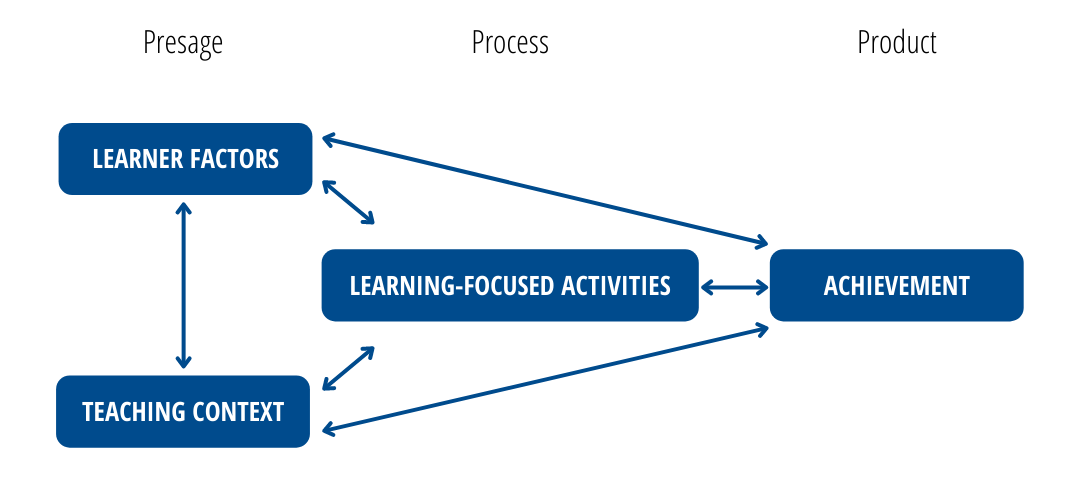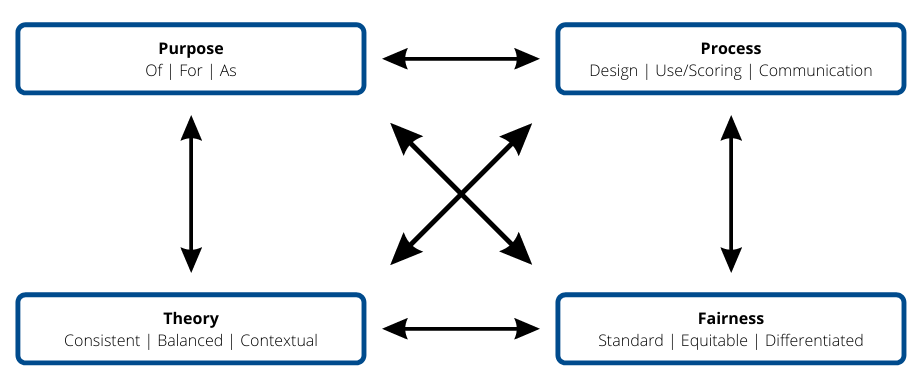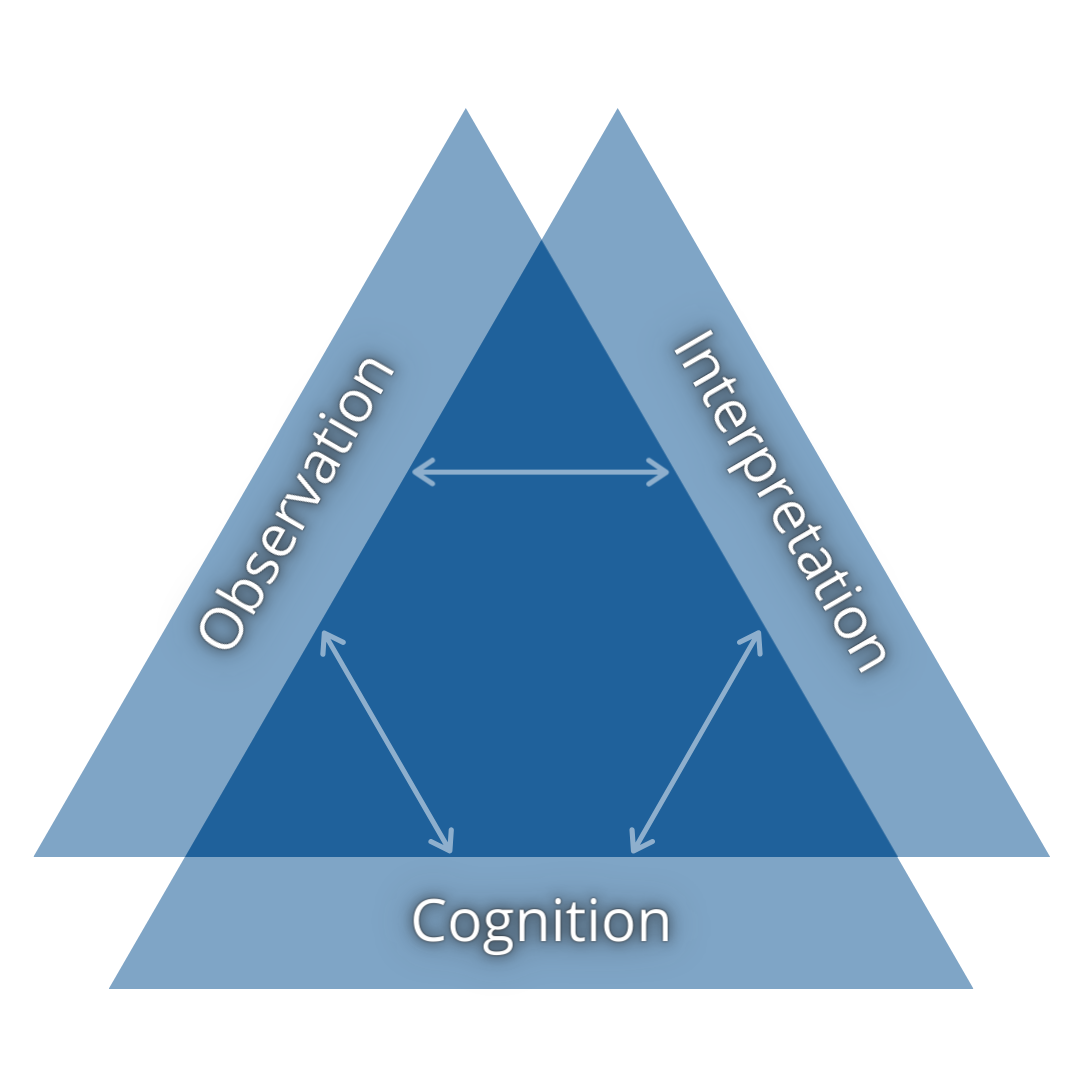1 OTESSA22 - Assessment and Digital Technology in Higher Education
Introduction
Colin Madland, PhD Candidate, University of Victoria
Slides - https://bit.ly/otessa22-b
Find me on the web…
Twitter
Mastodon
Presented Online at OTESSA22, May 17, 2022
I acknowledge that the land where I currently live and work remains the traditional, ancestral, and unceded land of the
syilx(silks) people, whose historical stewardship of and connections to the land continue to today. I am grateful to be an uninvited guest on this land. To learn more, please visit the Westbank First Nation website.

Figure 1. Author’s bicycle overlooking Okanagan Lake.
Hypothes.is
If you haven’t already, feel free to sign up here as we will use hypothes.is later. Also, if you have questions or comments, please annotate to your heart’s content!
Background
This review is guided by four research questions:
- What are the major themes or patterns in the literature related to approaches to assessment in higher education?
- What are the major themes or patterns in the literature related to the impact of technology on assessment in higher education?
- What gaps exist in the literature related to approaches to assessment in technology-mediated higher education?
Scriven, 1967
Scriven, M. (1967). The methodology of evaluation. In B. O. Smith (Ed.), Perspectives of curriculum evaluation. Rand McNally
- distinction between
formativeandsummative
Bloom, 1968
Bloom, B. (1968). Learning for Mastery. Instruction and Curriculum. Regional Education Laboratory for the Carolinas and Virginia, Topical Papers and Reprints, Number 1. Evaluation Comment, 1(2), 12.
- Incorporated
formativeandsummativedistinction into his ideas aboutmastery learning
Mislevy, 1994
Mislevy, R. J. (1994). Test theory reconcieved. ETS Research Report Series, 1994(1), i–38. https://doi.org/10/gjm236
test theory is machinery for reasoning from students’ behavior to conjectures about their competence, as framed in a particular conception of competence.”(p. 4).
Black and Wiliam, 1998
Black, P., & Wiliam, D. (1998). Assessment and Classroom Learning. Assessment in Education: Principles, Policy & Practice, 5(1), 7–74. https://doi.org/10/fpnss4
major review of the literature on
formative assessment
describe formative assessment as encouraging gains in achievement that were
> among the largest ever reported for educational interventions (p. 61)
Pellegrino et al., 2001
Pellegrino, J. W., Chudowsky, N., & Glaser, R. (2001). Knowing What Students Know: The Science and Design of Educational Assessment. National Academies Press. https://doi.org/10.17226/10019
- “a process of drawing reasonable inferences about what students know on the basis of evidence derived from observations of what they say, do, or make in selected situations” (p. 112)
- “reasoning from evidence” (p. 43)
Approaches to Learning
Biggs, 1993
Biggs, J. B. (1993). From Theory to Practice: A Cognitive Systems Approach. Higher Education Research & Development, 12(1), 73–85. https://doi.org/10/ccdmd9

Figure 3. 3-P Model of Teaching and Learning adapted from Biggs (1993)
Presage
- factors that precede learning activities
- learner factors
- prior knowledge
- educational experience
- affective states
- wellness (physical & mental)
- prior knowledge
- teacher factors
- vertical & horizontal discourses (Bernstein, 1999)
- institutional policies
- department norms
- educational experiences
- vertical & horizontal discourses (Bernstein, 1999)
- learner factors
Process
- learning focused activities
- reading, writing, discussing, building, creating, synthesizing, researching, sharing, debating, publishing…
- surface approaches
- using low-level cognitive skills when high-level cognitive skills are required
- deep approaches
- using high-level cognitive skills for tasks which require them
Conceptions of Assessment
Brown, 1994; 1996
Brown, G. T. L. (2004). Teachers’ conceptions of assessment: Implications for policy and professional development. Assessment in Education: Principles, Policy & Practice, 11(3), 301–318. https://doi.org/10.1080/0969594042000304609
Brown, G. T. L. (2006). Teachers’ Conceptions of Assessment: Validation of an Abridged Version. Psychological Reports, 99(1), 166–170. https://doi.org/10/bf67hf
- general mental structure, encompassing beliefs, meanings, concepts, propositions, rules, mental images, preferences
- improvement of teaching and learning,
- school accountability,
- student accountability, or
- treating assessment as irrelevant.
- improvement of teaching and learning,
Fletcher et al., 2012
Fletcher, R. B., Meyer, L. H., Anderson, H., Johnston, P., & Rees, M. (2012). Faculty and Students Conceptions of Assessment in Higher Education. Higher Education, 64(1), 119–133. https://doi.org/10/ctccpq
- instructors were more likely than learners to view assessment as consistent and trustworthy methods to understand and improve learning
- learners were more likely to have negative views of assessment and viewed it as a measure of student and institutional accountability.
Approaches to Assessment
Both learning and assessment are complex phenomena which are impacted by myriad factors.
Shepard (2000)
Shepard, L. A. (2000). The Role of Assessment in a Learning Culture. Educational Researcher, 29(7), 4–14. https://doi.org/10/cw9jwc
- traditional assessment structures originated in behaviourist models of teaching and learning
- emphasis on culture of summative assessment
- modern constructivist models of teaching and learning are less compatible with previous assessment structures, yet a culture that emphasizes summative assessment seems to persist alongside emerging models of assessment
DeLuca, 2016
DeLuca, C., LaPointe-McEwan, D., & Luhanga, U. (2016). Approaches to classroom assessment inventory: A new instrument to support teacher assessment literacy. Educational Assessment, 21, 248–266. https://doi.org/10/gfgtsg

Figure 4. Approaches to Classroom Assessment from DeLuca et al. (2016)
- Approaches to Classroom Assessment Inventory
- designed to inventory K12 teachers’ thoughts, beliefs, actions related to assessment
- Assessment purpose (of, for, as learning)
- Assessment process (design, use/scoring, communication)
- Assessment fairness (standard, equitable, differentiated)
- Assessment theory (consistent, balanced, contextual)
- Assessment purpose (of, for, as learning)
- designed to inventory K12 teachers’ thoughts, beliefs, actions related to assessment
Technology-Mediated Assessment in Higher Education
Contrasting with K12
There is a very large body of literature on assessment in K12 learning contexts, and a not-quite as large, but still substantial body of literature on assessment in higher education. It may be tempting to conflate the two contexts, but K12 teachers typically complete 2 full years of pedagogical training as part of their academic and practical preparation. These two years often include specific courses on assessment, learning theory, as well as domain-specific pedagogies.
On the other hand, higher education instructors (from part-time sessionals to adjuncts to tenure-track and tenured faculty) tend to engage in little academic preparation in learning theories or assessment, although they seem to absorb the signature pedagogies of their discipline.
Impact of Technology
- Impact on higher education is ubiquitous (SIS, LMS/VLE, CRM, etc.)
- Tends to emphasize
efficiency(however ill-defined that may be)- doing the same things with greater speed and/or reduced effort
- reinscribes mis-aligned assessment structures
Bearman et al. 2020
Bearman, M., Dawson, P., Ajjawi, R., Tai, J., & Boud, D. (Eds.). (2020). Re-imagining university assessment in a digital world. Springer.
- cognitive offloading
- artificial intelligence
- “personalized” learning; recommender systems, automated item generation, automated essay scoring
- “personalized” learning; recommender systems, automated item generation, automated essay scoring
- dialogic feedback
- video, audio, screencast
- video, audio, screencast
- data & learning analytics
- process data
- process data
- peer/self-assessment
- micro-credentials
However…
- critical to consider ethical and social impacts!
- surveillance
- equity
- algorithmic assessment
Bower, 2019
Bower, M. (2019). Technology‐mediated learning theory. British Journal of Educational Technology, 50(3), 1035–1048. https://doi.org/10.1111/bjet.12771
In technology-mediated learning contexts, agentic intentions reside with humans, and not with technology.
- 3 (select) premises
- technology
mediatesbetween learners and outcomes
- beliefs, knowledge, practices, and environment are mutually influential (add this to the complexity of assessment)
- role of teachers is to optimise learning through the
purposeful deploymentof learning technologies
- technology
Themes and Research Directions
- assessment as conversation in digital environments
- validity exploration of Approaches to Assessment in higher ed.
- humanizing assessment, ethics
References
Bearman, M., Dawson, P., Ajjawi, R., Tai, J., & Boud, D. (Eds.). (2020). Re-imagining university assessment in a digital world. Springer.
Bernstein, B. (1999). Vertical and Horizontal Discourse: An Essay. British Journal of Sociology of Education, 20(2), 157–173. JSTOR. https://doi.org/10/ftmsvc
Biggs, J. B. (1993). From Theory to Practice: A Cognitive Systems Approach. Higher Education Research & Development, 12(1), 73–85. https://doi.org/10/ccdmd9
Black, P., & Wiliam, D. (1998). Assessment and Classroom Learning. Assessment in Education: Principles, Policy & Practice, 5(1), 7–74. https://doi.org/10/fpnss4
Bloom, B. (1968). Learning for Mastery. Instruction and Curriculum. Regional Education Laboratory for the Carolinas and Virginia, Topical Papers and Reprints, Number 1. Evaluation Comment, 1(2), 12.
Bower, M. (2019). Technology‐mediated learning theory. British Journal of Educational Technology, 50(3), 1035–1048. https://doi.org/10.1111/bjet.12771
Brown, G. T. L. (2004). Teachers’ conceptions of assessment: Implications for policy and professional development. Assessment in Education: Principles, Policy & Practice, 11(3), 301–318. https://doi.org/10.1080/0969594042000304609
Brown, G. T. L. (2006). Teachers’ Conceptions of Assessment: Validation of an Abridged Version. Psychological Reports, 99(1), 166–170. https://doi.org/10/bf67hf
DeLuca, C., LaPointe-McEwan, D., & Luhanga, U. (2016). Approaches to classroom assessment inventory: A new instrument to support teacher assessment literacy. Educational Assessment, 21, 248–266. https://doi.org/10/gfgtsg
DeLuca, C., Willis, J., Cowie, B., Harrison, C., Coombs, A., Gibson, A., & Trask, S. (2019). Policies, Programs, and Practices: Exploring the Complex Dynamics of Assessment Education in Teacher Education Across Four Countries. Frontiers in Education, 4, 132. https://doi.org/10/gh5k2r
Earl, L. M. (2013). Assessment as learning: Using classroom assessment to maximize student learning (Second edition). Corwin Press.
Fletcher, R. B., Meyer, L. H., Anderson, H., Johnston, P., & Rees, M. (2012). Faculty and Students Conceptions of Assessment in Higher Education. Higher Education, 64(1), 119–133. https://doi.org/10/ctccpq
Mislevy, R. J. (1994). Test theory reconcieved. ETS Research Report Series, 1994(1), i–38. https://doi.org/10/gjm236
Pellegrino, J. W., Chudowsky, N., & Glaser, R. (2001). Knowing What Students Know: The Science and Design of Educational Assessment. National Academies Press. https://doi.org/10.17226/10019
Scriven, M. (1967). The methodology of evaluation. In B. O. Smith (Ed.), Perspectives of curriculum evaluation. Rand McNally
Shepard, L. A. (2000). The Role of Assessment in a Learning Culture. Educational Researcher, 29(7), 4–14. https://doi.org/10/cw9jwc
